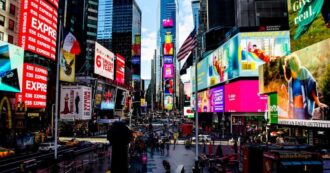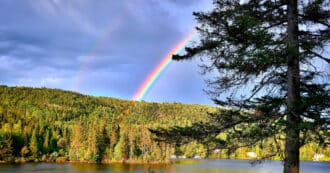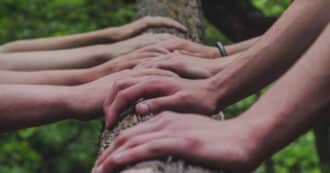By Yonatan Neril
I visited The Essex County Environmental Center in New Jersey, which educates tens of thousands of kids every year on environmental sustainability. They take kids on a Native American trail, and they teach them about local plants and animals and about growing their own food. An Indigenous Lenape hut is built on the grounds. These are things that local kids here are growing up learning on field trips to the a center for environmental education. Naturalist and philosopher John Muir once observed that the best way to discover is to stay in one place and let the world reveal itself. Step one in that process is to go out into nature. If we stay indoors, behind walls and screens, we have no opportunity to discover the beauty, healing powers, and mysteries of our planet, first-hand.
Many of the children who visit the center come from Newark, a large city near New York City, the largest city in the United States. Why does it matter if these children play outside without touching the earth or being near trees? They might experience “‘nature deficit disorder,” a term coined by Richard Louv in his book, “Last Child in the Woods.”

The 2015 Outdoor Participation Report notes the little amount of time that children in the U.S. are outdoors. As Timothy Egan writes in the New York Times’ article based on Louv’s book, “Kids who do play outside are less likely to get sick, to be stressed or become aggressive, and are more adaptable to life’s unpredictable turns.” In other words, places like the Essex Country Center play an important role in developing healthy skillsets for life.
American author and scientist Aldo Leopold wrote in “A Sand County Almanac” that “There are two spiritual dangers in not owning a farm. One is the danger of supposing that breakfast comes from the grocery, and the other that heat comes from the furnace.” This relates to a major change that has arisen in our modern and especially globalized era: damaging, harming, and oppressing others in very indirect ways, perhaps without even knowing it. The consumer has become distanced and removed from the producer and the environment of production, and as a result often does not realize, or chooses not to care, about how their consumption impacts other people and the natural world.
The more disconnected we become from nature, the more callous we become to it – and the more we conquer it with cruelty and lack of concern, as Rabbi Daniel Kohn taught. He notes that as soon as a person thinks they share nothing with nature, it becomes an object for people to exploit and conquer.

In my 38 years, I have gone from living outside in nature to living inside an urban environment. At some point, perhaps in high school, I began spending more time in the presence of computer screens than in the presence of plants and animals. Now that ratio is about 10 or 20 to 1, and some days 100 to 1. This highlights a major shift in humanity: out of nature and into cities. Most people in the world now live in cities. Out of agriculture and behind computer screens. These shifts have tremendous ramifications for human society. Studies show that the first thing people see in the morning is the LED screen of their I-Phone or Android.
Today, Pope Francis continues the conversation about ecological conversion. He wrote in “Laudato Si’: On Care for Our Common Home”:
Ecological culture cannot be reduced to a series of urgent and partial responses to the immediate problems of pollution, environmental decay and the depletion of natural resources. There needs to be a distinctive way of looking at things, a way of thinking, policies, an educational programme, a lifestyle and a spirituality which together generate resistance to the assault of the technocratic paradigm. Otherwise, even the best ecological initiatives can find themselves caught up in the same globalized logic. To seek only a technical remedy to each environmental problem which comes up is to separate what is in reality interconnected and to mask the true and deepest problems of the global system. (paragraph 111)
All this begs the question: How do we become more sustainable? How do we live in a way that’s more in balance with nature?

Environmental education is a key part of it. And I’m so happy to see it taking place here.





